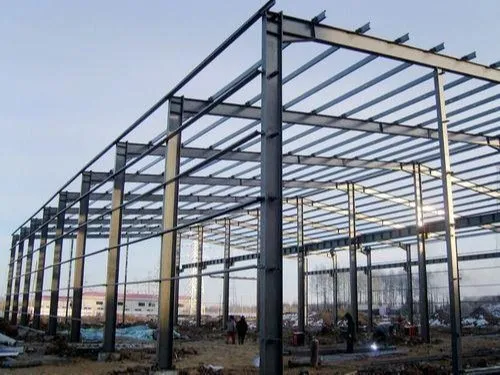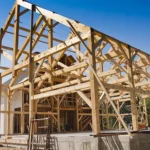When embarking on any construction project, whether it’s for residential, commercial, or industrial purposes, selecting the right materials is essential for both durability and long-term success. Steel frames have become increasingly popular due to their strength, flexibility, and ability to withstand environmental challenges. However, finding reliable steel frame suppliers is crucial for ensuring that your building stands the test of time. Here’s a comprehensive guide on how to choose the right steel frame suppliers for your project.
1. Assess Your Project Requirements
Before you even start looking for suppliers, it’s important to understand your own project’s needs. Steel frames come in different types, sizes, and specifications depending on the nature of the building. Are you constructing a residential property or a large-scale commercial building? Each of these will require different grades of steel and fabrication processes.
- Project Size and Scope: Larger projects will likely need bulk orders and may require custom-made frames, while smaller residential builds can use standard steel frames.
- Quality Standards: Ensure the supplier can meet or exceed industry standards, such as ISO certification or other quality assurance benchmarks.
- Budget Considerations: It’s essential to balance quality with budget. Inexpensive frames may save money upfront but could compromise the long-term integrity of the building.
2. Research Supplier Reputation and Experience
Once you’ve outlined your project’s needs, research potential steel frame suppliers to ensure they have the necessary experience and reputation. Established suppliers with a long history in the industry tend to be more reliable because they’ve likely refined their processes over time and developed strong relationships with clients and manufacturers.
- Check Reviews and Testimonials: Look for online reviews, case studies, and client testimonials. Sites like Google Reviews, industry forums, and construction blogs can provide insights into the supplier’s reliability, delivery time, and product quality.
- Years in Business: A supplier with a long track record often indicates stability and expertise. However, don’t discount newer companies, especially if they offer innovative products or competitive pricing.
- Portfolio of Previous Projects: Request examples of previous work to see if they have experience handling projects similar to yours.
3. Evaluate Product Quality and Certifications
The quality of steel is paramount for any construction project, so verifying that your supplier offers products that meet the required standards is essential. In many countries, steel must adhere to specific building codes and safety requirements. Reliable suppliers should be transparent about their product certifications.
- Material Certification: Ensure that the steel frames are certified for structural use. This may include certification from organizations such as the American Institute of Steel Construction (AISC) or equivalent bodies in your region.
- Corrosion Resistance: In coastal areas or regions with high humidity, corrosion resistance becomes a critical factor. Ask whether the steel frames are galvanized or treated for durability against rust.
- Warranties: A trustworthy supplier will often provide warranties on their products, guaranteeing their quality and performance over a set period.
4. Consider Supplier Capabilities and Services
Not all steel frame suppliers are created equal in terms of the range of products and services they offer. It’s important to work with a supplier that can meet all of your specific needs, including customization, delivery, and installation support.
- Customization Options: Some projects may require custom steel frame designs. Choose a supplier who offers fabrication services tailored to your specifications.
- Delivery and Logistics: Timely delivery is essential to avoid construction delays. Check if the supplier offers reliable shipping and delivery schedules. Some suppliers may also provide on-site delivery to help you avoid extra transportation costs.
- Installation Support: A good supplier may offer installation services or have partnerships with installers who can ensure the frames are erected correctly. Having support during installation can minimize the risk of errors and ensure the building is structurally sound.
5. Get Multiple Quotes and Compare Pricing
While price shouldn’t be the sole deciding factor when choosing a steel frame supplier, it’s important to get multiple quotes to ensure you’re getting competitive pricing for the quality and services offered.
- Request Detailed Quotes: Ask for an itemized quote that breaks down material costs, delivery charges, and any additional services, like customization or installation.
- Bulk Discounts: For larger projects, many suppliers offer discounts on bulk orders. Ask if the supplier is open to negotiating prices based on the size of your order.
- Long-Term Contracts: If you plan on using steel frames for multiple projects, consider forming a long-term relationship with a supplier. This can often result in better pricing and priority service.
6. Evaluate Customer Service and Communication
A reliable steel frame supplier should be easy to communicate with and responsive to your questions or concerns. Excellent customer service ensures that any issues with your order are handled promptly and efficiently.
- Responsiveness: Pay attention to how quickly the supplier responds to inquiries. Fast response times can be a good indicator of reliability and professionalism.
- After-Sales Support: A supplier should provide support even after the frames have been delivered, such as assistance with assembly or addressing any quality issues.
- Clear Contracts: Ensure the supplier provides a clear and detailed contract that outlines payment terms, delivery schedules, and warranty information.
7. Sustainability and Environmental Impact
Sustainability is becoming an increasingly important factor in construction, and using eco-friendly materials can contribute to the environmental performance of your building. Many steel frame suppliers are now offering recycled steel or using environmentally friendly production methods.
- Recycled Steel: Inquire if the supplier uses recycled materials, which can reduce the environmental impact of your project.
- Green Certifications: Look for suppliers that adhere to green building standards or certifications like LEED (Leadership in Energy and Environmental Design).
Conclusion
Choosing the right steel frame suppliers is a vital step in ensuring the success of your construction project. By evaluating your project needs, researching suppliers, checking certifications, and considering factors like customer service and sustainability, you can find a supplier that offers the right mix of quality, reliability, and affordability. Take the time to get multiple quotes and ensure that your chosen supplier can meet your specific requirements—this will go a long way toward ensuring your building’s structural integrity for years to come.



